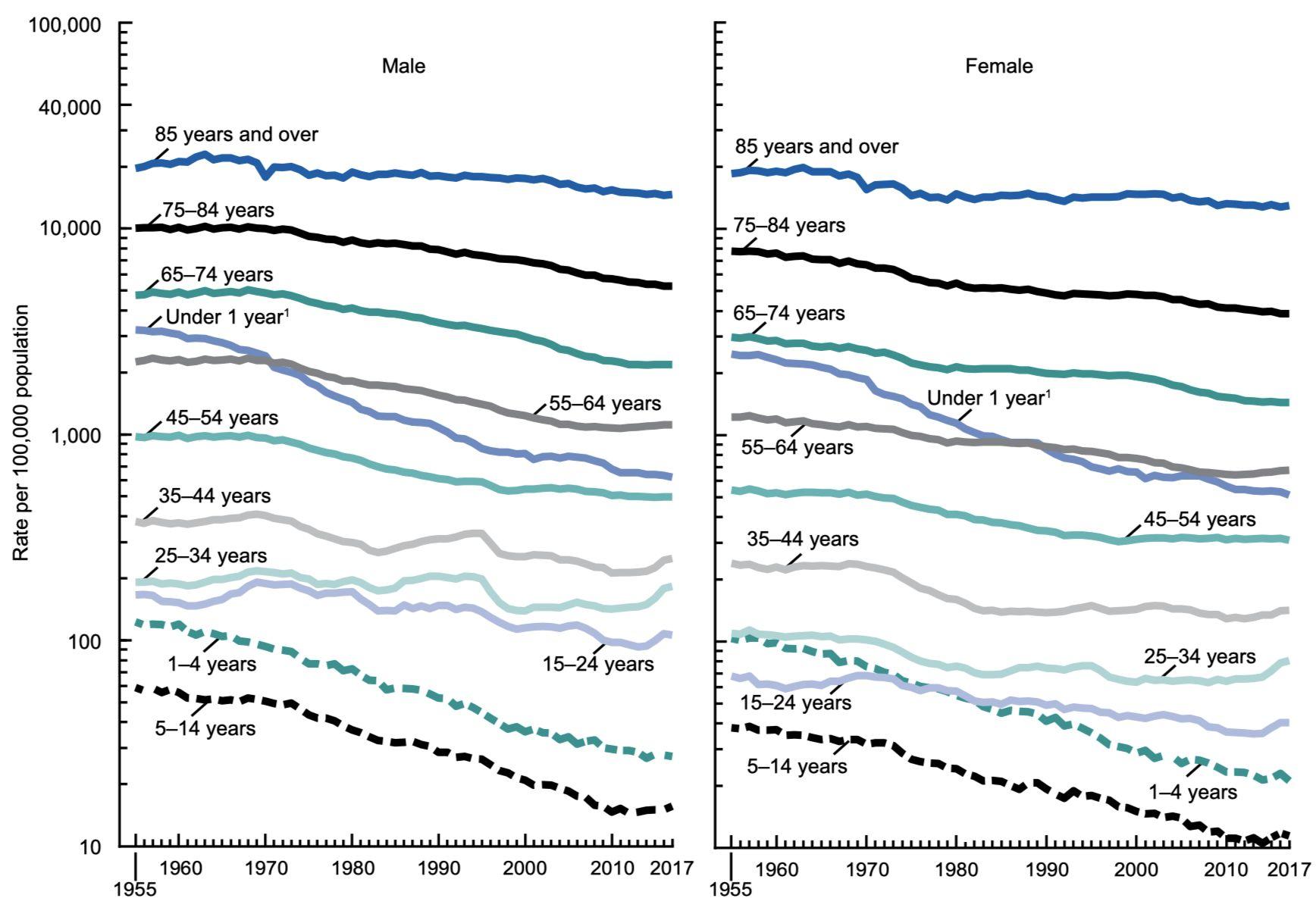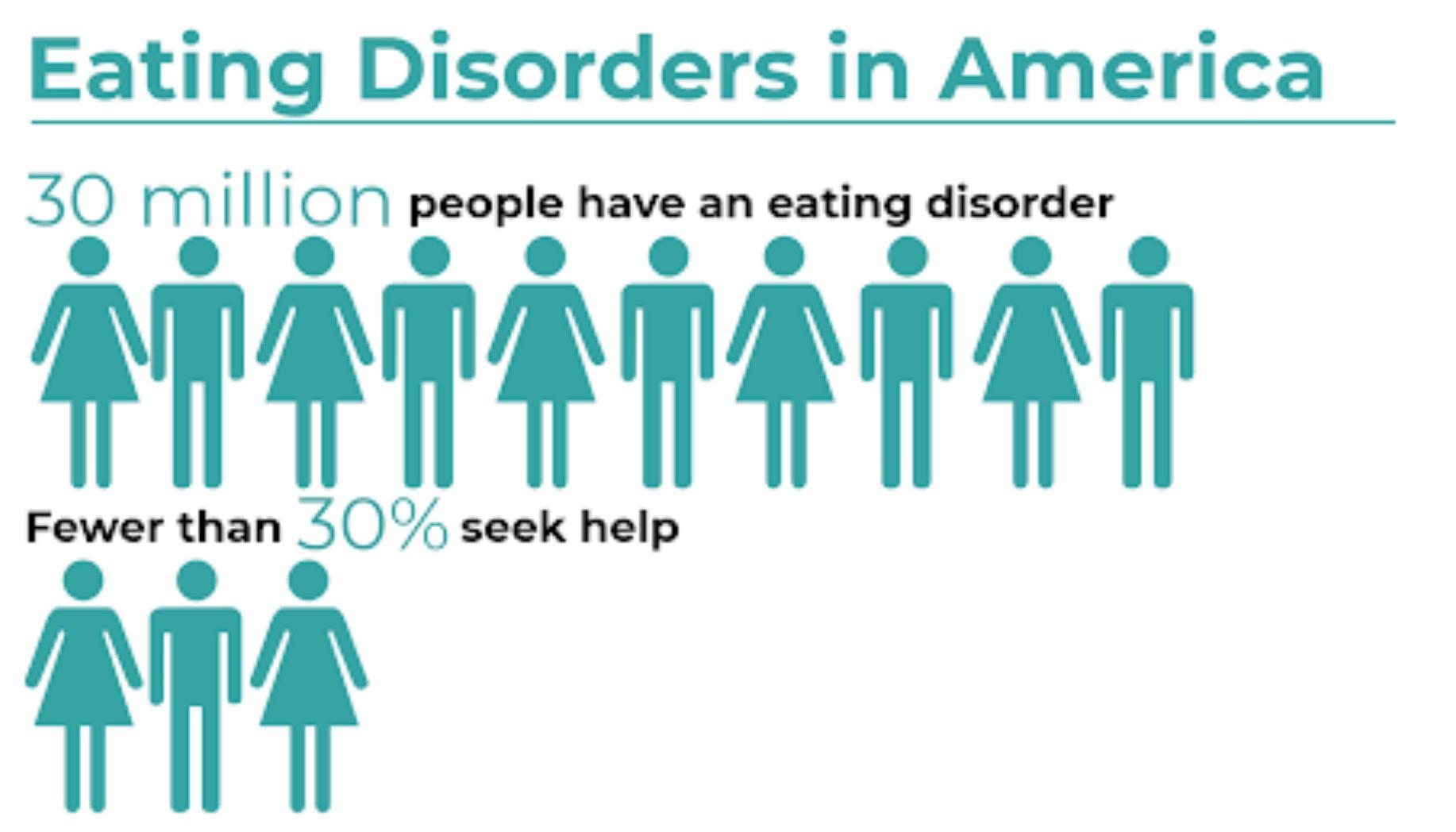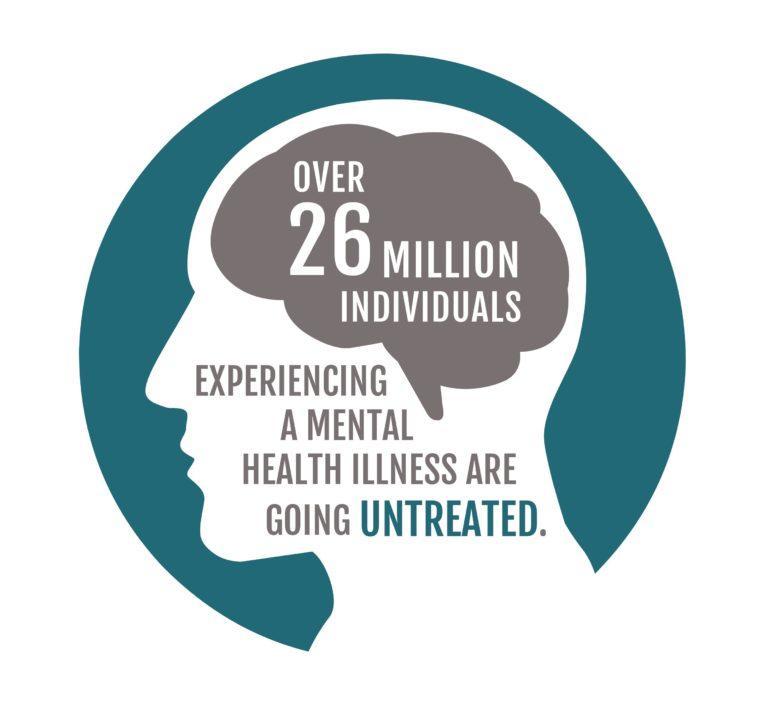
7 minute read
Mental health (Z Guo, SY Lee, HY Su, T Zhang
Introduction
Mental health illness is defined as a mental, behavioral, or emotional disorder. The symptoms or impact could vary from no impairment to serious functional impairment in which considerably disrupting one's physical and daily activities, such as working, sleeping, and feeling. Researchers have shown that mental health illnesses are common, and becoming increasingly important in the United States, with the fact proving that Mental illnesses are affecting tens of millions of people each year, but only around half of the affected individuals received appropriate mental health care, and those who did not receive mental health supports are more likely to end up in disability, secondary health problems, and, if the worse case, suicide attempts. In this poster, we will cover four subtopics, which are alcoholism, eating disorder, discrimination, and healthcare supports. Our first objective is to prevent mental illnesses by introducing the health effects of the two most common diseases, alcoholism, and eating disorders. Secondly, we will cover potential mental health support resources for individuals who substantially suffered from mental and emotional disorders to minimize mental health illness exacerbation.
Advertisement

Alcoholism
Alcoholism: individuals have strong needs for alcohol consumptions

Alcohol dependence: Diaphoresis, shakiness, nausea and anxiety after withdrawn.
Figure 1. Death rates, by age and sex: United States, 1955–2017, Rates are based on population estimates which differ from infant mortality rates (based on live births); SOURCE: NCHS, National Vital Statistics System, Mortality. Source: https://www.cdc.gov/nchs/fastats/alcohol.htm
The US Statistics:
14.4million adults
(9.2million men/5.3 million women) and 401,000 adolescents are affected, high mortality rate in elder population.
Treatments: Disulfiram, inhibiting Acetaldehyde Dehydrogenase, creates an unpleasant effect after alcohol consumption; Acamprosate, a GABA agonist, helps to reduce alcohol intake; Also group/family therapy are available where patients talk to a therapist to reflect/check on their recent alcohol activities :)
H. Su’s opinions: we should reinforce general medical knowledge to all people to make them aware of the downsides of heavy/under-age drinking. Also, I stay positive for current massive brain and drug researches. The more we study, the more questions we will ask. I believe someday soon, we shall overcome alcoholism with advanced medical knowledge and technologies.
Eating disorder

Eating disorders are abnormal behavior involving food, due to mental conditions. About 30 million people in the US struggle with eating disorder and it


can affect anyone regardless of gender, age, ethnicity or culture. The two most common types of eating
women, especially teenage girls, with about 95% of people with anorexia and 80% of Figure 2. Eating Disorders in America. Source: https://www.thenortherner.com/news/2019/01/21/suffering-and-silenced-thereality-of-eating-disorders-on-campus/ disorders are Anorexia Nervosa and Bulimia Nervosa. These disorders are much more common in people with bulimia are female. Patients with Anorexia Nervosa typically weighs less than the normal body weight, often believing that they are overweight. There are two types of Anorexia Nervosa, one being the restricting type where people reduce the amount of food they eat in order to lose weight. Another form of the disorder is binge eating and purging type, where they eat large amounts of food in one sitting and intentionally vomits or take laxatives. Bulimia nervosa also involves this behavior, similar to the Anorexia Nervosa, but the difference is that the BMI of Anorexia Nervosa patients are very low whereas the BMI of Bulimia Nervosa is normal or higher than average. In both of these eating disorders, patients are preoccupied with food, their physical appearance and how much they weigh. They may have low self-esteem due to their distorted self-image.
Treating an eating disorder generally involves a combination of psychological and nutritional counseling. These patients should be monitored and addressed the symptoms and medical consequences, and also psychological, interpersonal, and cultural forces that contribute to or maintain the eating disorder. Nutritional counseling is also very important and educating the patients about nutritional needs so that the patients make the right choices of what they eat every day.
S. Lee’s opinion: People do not realize how eating disorders can impact not only the patients themselves but also families and friends. Also, the media impose pressure on women to be “skinny and beautiful”. I think it is important to educate young adults to have positive self- image to prevent them from possibly getting an eating disorder.
Discrimination

Discrimination of people with mental disorder is a global issue
which is still not adequately understood by the society, especially in low- and middle-income countries. Many patients live with the stigma, shame, exclusion from the family and society: direct
discrimination from other people, unfair insurance schemes, employment inequity, lesser investment of health-care
resources, human rights violation in mental health institutions, hospitals, and communities.

In the past decades, more and more countries launched some
activities, policies and laws that promote the rights of people with
mental disorders and provide them with legal protections to reduce
stigma and discrimination. For example, a program which called Time to Change and targeted to reduce mental health -related stigma and discrimination by 5% by facilitating social contact between people Figure 3. Is this what we want? Source: https://www.who.int/docstore/world-health-day/w hd2001/images/CICR-chains.jpg
with and without mental health problems and provide online resource on mental health and employment, was launched in England in 2009.
Z. Guo’s opinions: I think a correct recognition of mental disorders is the most important and first step to diminish discrimination. Just like physical diseases, mental diseases are real medical conditions, which are diagnosable and treatable. Therefore, no justification in ethics, science or society can exclude people with a mental illness from our communities.
Mental health care

Mental health care is facing challenges in both high-income
countries and low- and middle-income countries (LMICs). More
than 85% of the world’s population live in the LMICs. More than

80% of people who have mental disorders are living in LMICs, with mental illness accounting for 8.8% of the total burden of
other hand, as a high-income country, the United States was proclaimed to have a disease. However, the proportions of people with severe mental disorder who receive treatment are only 11.1% in China. On the Figure 4. Untreated individuals in America. Source: https://mississippitoday.org/2019/09/30/mississippi-menta l-health-care-the-system-failed-bobby/
mental health system as colossal failure. The high-income countries also have problems in mental health systems as too expensive, fragmented, and not focused enough. The challenges facing mental health services share in LMICs and high-income countries, including lack of appropriate legislation and policy, lack of funding, lack of evidence-based interventions and training, and lack of public education. One evidence for current public education would be Mental Illness Awareness Week (MIAW), which was established in 1990 by the Congress. It is the first week in October every year. During this week, mental health organizations across the country fund events and provide mental health information to promote public education. Purdue has its own MIAW every February. It is held by Purdue Students Government and College of Pharmacy. During MIAW in 2020, Purdue held many interesting events including yoga, cycling, therapy dogs, and ask a pharmacist.
T. Zhang’s opinions: Public education is the most important goal we need to focus on right now. The current public education is mostly targeting people who want to know more about this area, but people who have not heard of mental illness at all is who we really want to help.
References
Alcohol Facts and Statistics. National Institute on Alcohol Abuse and Alcoholism. https://www.niaaa.nih.gov/publications/brochures-and-fact-sheets/alcohol-facts-andstatistics. Published February 18, 2020. Accessed April 6, 2020. Carr GD. Alcoholism: A Modern Look at an Ancient Illness. Primary Care: Clinics in Office Practice. 2011;38(1):9-21. doi:10.1016/j.pop.2010.11.002 Eating Disorders: About More Than Food. National Institute of Mental Health. http://nimh.nih.gov/health/publications/eating-disorders/index.shtml#pub1. Published 2018. Accessed February 5, 2020. Henderson C, Corker E, Lewis-Holmes E, et al. England's Time to Change Antistigma Campaign: One-Year Outcomes of Service User-Rated Experiences of Discrimination. Psychiatric Services. https://ps.psychiatryonline.org/doi/full/10.1176/appi.ps.201100422?url_ver=Z39.88- 2003&rfr_id=ori:rid:crossref.org&rfr_dat=cr_pub%3dpubmed. Published May 1, 2012. Accessed February 23, 2020. Jacob K, Sharan P, Mirza I, et al. Mental health systems in countries: where are we now? The Lancet. 2007;370(9592):1061-1077. doi:10.1016/s0140-6736(07)61241-0 Mental Illness Awareness Week. Mental Health America. https://www.mhanational.org/mental-illness-awareness-week. Accessed March 31, 2020. Mental Illness Awareness Week. NAMI. https://www.nami.org/miaw/. Accessed March 31, 2020. Rathod S, Pinninti N, Irfan M, et al. Mental Health Service Provision in Lowand Middle-Income Countries. Health Services Insights. 2017;10:117863291769435. doi:10.1177/1178632917694350 Waltz N. Suffering and silenced: The reality of eating disorders on campus. The Northerner. https://www.thenortherner.com/news/2019/01/21/suffering-and-silenced-the -reality-of-eating-disorders-on-campus/. Accessed April 6, 2020. Watkins B, Mississippi Center for Investigative Reporting. Mississippi mental health care: 'The system failed Bobby'. Mississippi Today. https://mississippitoday.org/2019/09/30/mississippi-mental-health-care-thesystem-failed-bobby/. Published September 30, 2019. Accessed April 6, 2020. World Health Organization. Is that what we want? https://www.who.int/docstore/world-health-day/whd2001/images/CICR-chai ns.jpg World Health Organization. Mental Health Around The World. https://www.who.int/world-health-day/previous/2001/files/whd2001_dare_to _care_en.pdf. Published 2001. Accessed February 23, 2020.










